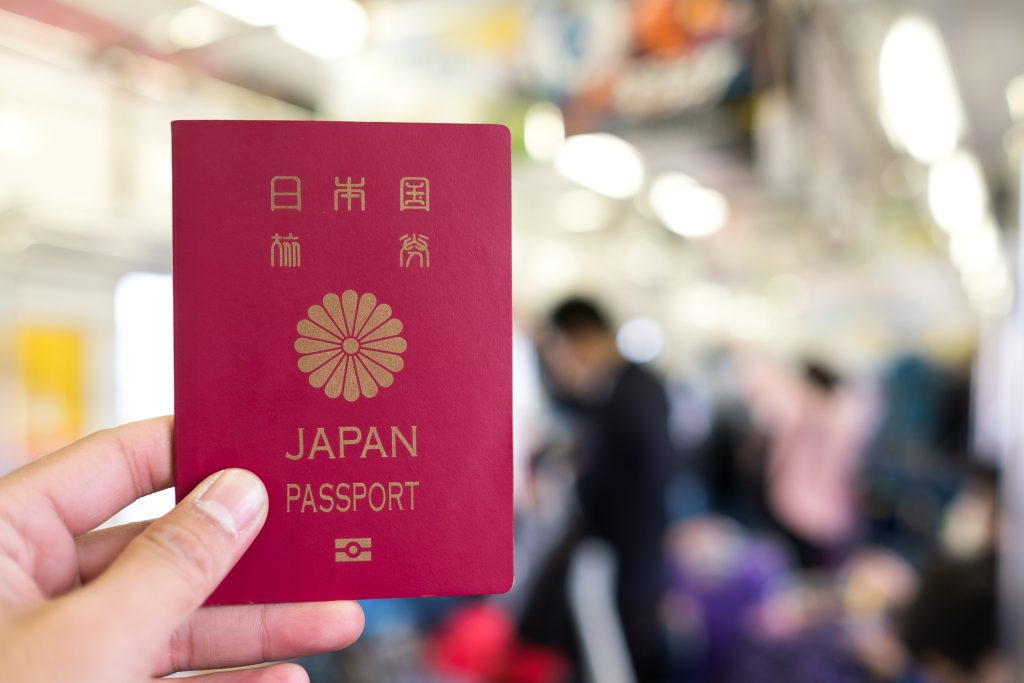
Fewer Japanese People Have Passports Now
The number of Japanese people who own a passport is decreasing. According to Japan’s Ministry of Foreign Affairs, only about 17 percent (17%) of the population had a valid passport at the end of 2024. This number is quite low and shows a continuing trend.
Before the COVID-19 pandemic, around 23% to 24% of Japanese citizens held a passport. The current rate of 17% is significantly lower than that. It is also low compared to many other developed countries. For example, passport ownership is much higher in places like South Korea (over 40%), the United States (around 50%), and the United Kingdom (over 80%). Interestingly, the Japanese passport is considered one of the “strongest” in the world, allowing visa-free travel to many countries.
There are several reasons why fewer Japanese people have passports today. One major factor is the economy. The Japanese yen has been weak against other currencies, like the US dollar, for some time. This makes traveling overseas much more expensive than it used to be. The cost of flights, hotels, and activities abroad has increased. Also, wages in Japan have not grown much over the years, making it harder for people to save money for international trips.
The COVID-19 pandemic also played a big role. For nearly three years, international travel was very difficult due to border closures and restrictions. Although travel is possible again, the number of Japanese people going abroad has not returned to pre-pandemic levels. Some reports suggest that younger generations might be less interested in international travel compared to the past. Many people also find plenty of attractions for travel within Japan.
Some experts worry about this trend. They believe that having fewer people travel abroad, especially young people, could lead to less understanding of different cultures and global perspectives. They are concerned it might affect Japan’s international relationships and competitiveness in the future.
For now, the percentage of Japanese passport holders remains low. The weak yen and high travel costs are significant challenges. It is unclear if or when this trend might change.
Th* nu**** of Japanese pe**** wh* ow* a pa****** is de********. Ac******* to Japan’s Ministry of Foreign Affairs, on** ab*** 17 pe***** (17%) of th* po******** ha* a va*** pa****** at th* en* of 2024. Th** nu**** is qu*** lo* an* sh*** a co******** tr***.
Be**** th* COVID-19 pa*******, ar**** 23% to 24% of Japanese ci****** he** a pa******. Th* cu***** ra** of 17% is si*********** lo*** th** th**. It is al** lo* co****** to ma** ot*** de******* co*******. Fo* ex*****, pa****** ow******** is mu** hi**** in pl**** li** South Korea (ov** 40%), th* United States (ar**** 50%), an* th* United Kingdom (ov** 80%). In***********, th* Japanese pa****** is co********* on* of th* “st********” in th* wo***, al****** vi**-fr** tr**** to ma** co*******.
Th*** ar* se***** re***** wh* fe*** Japanese pe**** ha** pa******** to***. On* ma*** fa**** is th* ec*****. Th* Japanese yen ha* be** we** ag***** ot*** cu*********, li** th* US dollar, fo* so** ti**. Th** ma*** tr******** ov****** mu** mo** ex******** th** it us** to be. Th* co** of fl*****, ho*****, an* ac********* ab**** ha* in********. Al**, wa*** in Japan ha** no* gr*** mu** ov** th* ye***, ma**** it ha**** fo* pe**** to sa** mo*** fo* in*********** tr***.
Th* COVID-19 pa******* al** pl**** a bi* ro**. Fo* ne**** th*** ye***, in*********** tr**** wa* ve** di******** du* to bo**** cl****** an* re**********. Al****** tr**** is po****** ag***, th* nu**** of Japanese pe**** go*** ab**** ha* no* re****** to pr*-pa******* le****. So** re***** su****** th** yo***** ge********** mi*** be le** in********* in in*********** tr**** co****** to th* pa**. Ma** pe**** al** fi** pl**** of at********** fo* tr**** wi**** Japan.
So** ex***** wo*** ab*** th** tr***. Th** be***** th** ha**** fe*** pe**** tr**** ab****, es********* yo*** pe****, co*** le** to le** un*********** of di******** cu****** an* gl**** pe***********. Th** ar* co******** it mi*** af**** Japan’s in*********** re************ an* co************* in th* fu****.
Fo* no*, th* pe********* of Japanese pa****** ho***** re***** lo*. Th* we** yen an* hi** tr**** co*** ar* si********* ch*********. It is un***** if or wh** th** tr*** mi*** ch****.
■ Vocaburaly
decreasing (減少している)
- 動詞 “decrease” (減少する) の現在分詞形。ここでは「減少している」という状態を表す形容詞のように使われています。
- 例: “The number of people is decreasing.” (人の数が減少しています。)
compared to… / compared with… (〜と比較すると)
- 何かを別の何かと比べる際に使う表現です。
- 例: “The current rate is low compared to other countries.” (現在の保有率は他の国々と比較すると低いです。)
(be) considered … (〜と見なされている、〜と考えられている)
- 「〜である」と一般的に認識されている、評価されていることを示す受動態の表現です。
- 例: “The Japanese passport is considered one of the strongest.” (日本のパスポートは最も強力なものの一つと考えられています。)
due to… (〜のために、〜が原因で)
- 理由や原因を示す表現。”because of…” と似ていますが、少し硬い響きがあります。
- 例: “Travel was difficult due to border closures.” (国境閉鎖のために旅行は困難でした。)
play a (big) role ((大きな)役割を果たす)
- 何かが原因や影響を与える上で重要であることを示す、よく使われるイディオム的な表現です。
- 例: “The pandemic played a big role.” (パンデミックが大きな役割を果たしました。)
return to (…) levels ((〜の)水準に戻る)
- 数値や状況などが以前の状態に戻ることを表す表現です。
- 例: “The number of travelers has not returned to pre-pandemic levels.” (旅行者の数はパンデミック前の水準に戻っていません。)
lead to… (〜につながる、〜を引き起こす)
- ある事柄が別の結果を引き起こす、原因となることを示す句動詞です。
- 例: “Fewer travelers could lead to less understanding.” (旅行者が減ることが理解の低下につながる可能性がある。)
remain low / high / stable (低いままである / 高いままである / 安定したままである)
- 状態が変わらずに続くことを表す表現。「remain + 形容詞」の形で使います。
- 例: “The percentage of passport holders remains low.” (パスポート保有者の割合は低いままです。)
■ 和訳
近年、パスポートを持つ日本人が減少
パスポートを所有する日本人の数が減少しています。日本の外務省によると、2024年末時点で有効なパスポートを保有していた国民は約17パーセント(17%)に過ぎません。この数字は非常に低く、この傾向が続いていることを示しています。
新型コロナウイルス感染症のパンデミック以前は、日本国民のおよそ23%から24%がパスポートを保有していました。現在の17%という保有率は、それよりも大幅に低いものです。これは他の多くの先進国と比較しても低い水準です。例えば、韓国(40%超)、アメリカ(約50%)、イギリス(80%超)といった国々では、パスポート保有率ははるかに高くなっています。興味深いことに、日本のパスポートは世界で最も「強力な」パスポートの一つとされており、多くの国へビザなしで渡航することが可能です。
今日、パスポートを持つ日本人が減っているのには、いくつかの理由があります。一つの大きな要因は経済です。日本の円は、米ドルなどの他の通貨に対して、しばらくの間弱い状態が続いています。これにより、海外旅行は以前よりもずっと費用がかかるようになりました。海外での航空券、ホテル、アクティビティの費用が上昇しています。また、日本では長年にわたり賃金があまり上昇しておらず、人々が海外旅行のためにお金を貯めることが難しくなっています。
新型コロナウイルスのパンデミックも大きな役割を果たしました。約3年間、国境閉鎖や制限により、海外旅行は非常に困難でした。再び旅行は可能になりましたが、海外へ行く日本人の数はパンデミック前の水準には戻っていません。一部の報道では、若い世代は過去に比べて海外旅行への関心が低い可能性があると示唆されています。また、多くの人々が日本国内にも旅行の魅力がたくさんあると感じています。
一部の専門家はこの傾向を懸念しています。彼らは、特に若者を中心に海外へ旅行する人が減ることで、異文化理解やグローバルな視点が低下する可能性があると考えています。これが将来的に日本の国際関係や競争力に影響を与えるのではないかと懸念しています。
今のところ、日本のパスポート保有率は低いままです。円安と高い旅行費用が大きな課題となっています。この傾向がいつ、あるいは変わるのかどうかは不透明です。
■ MikeとEmilyのDiscussion
| (Mike and Emily are having coffee in Tokyo.) Mike: Hey Emily, did you see that news article about the number of Japanese people with passports? I read only about 17% have one now. I was pretty surprised. Emily: Mike, I saw that too! Seventeen percent? Honestly, I was quite taken aback. It seems incredibly low, doesn’t it? In the UK, it feels like almost everyone pops off somewhere abroad at least once a year, so most people have a passport. Mike: Yeah, it’s way lower than in the States too, even though our rate isn’t as high as yours. The article blamed the weak yen making international travel super expensive, which makes sense. Flying overseas costs a fortune these days. Emily: Absolutely, the exchange rate must be a huge factor. And I suppose the general rise in prices globally doesn’t help. But it also mentioned younger people potentially being less interested? That struck me as odd. In Europe, it’s almost a rite of passage for students and young people to grab a cheap flight and explore neighbouring countries. Mike: True. It’s probably different when you’re on an island, you know? You can’t just drive across the border easily like you can between some US states and Canada or Mexico, or like you guys do in Europe. Plus, Japan has so many amazing places to visit right here. Domestic travel is a big deal. Emily: Oh, definitely. The domestic travel options here are fantastic. Still, the article made a fair point about the potential downside – fewer people getting that international exposure and understanding different cultures firsthand. You do wonder what the long-term impact might be. Mike: For sure. It’s a complex issue. Maybe things will change if the yen strengthens or if specific programs encourage more overseas travel again. Emily: Indeed. It will be interesting to watch. It just feels like a bit of a missed opportunity for many, given how interconnected the world is becoming. Mike: Totally agree. Anyway, want another coffee? Emily: Yes, please! | (Mike and Emily are having coffee in Tokyo.) Mike: He* Emily, di* yo* se* th** ne** ar***** ab*** th* nu**** o* Japanese pe**** wi** pa********? I re** on** ab*** 17% ha** on* no*. I wa* pr**** su********. Emily: Mike, I sa* th** to*! Se****** pe*****? Ho******, I wa* qu*** ta*** ab***. It se*** in********* lo*, do**** i*? In th* UK, it fe*** li** al**** ev****** po** of* so****** ab**** a* le*** on** a ye**, s* mo** pe**** ha** a pa******. Mike: Ye**, it’* wa* lo*** th** i* th* States to*, ev** th**** ou* ra** is**’* a* hi** a* yo***. Th* ar***** me******* th* we** ye* ma**** in*********** tr**** su*** ex********, wh*** ma*** se***. Fl**** ov****** co*** a fo***** th*** da**. Emily: Ab********, th* ex****** ra** mu** b* a hu** fa****. An* I su***** th* ge***** ri** i* pr**** gl******* do****’* he**. Bu* i* al** me******* yo***** pe**** po********* be*** le** in*********? Th** st**** m* a* od*. In Europe, it’* al**** a ri** o* pa***** fo* st****** an* yo*** pe**** t* gr** a ch*** fl**** an* ex***** ne********** co********. Mike: Tr**. It’* pr****** di******* wh** yo*’** o* a* is**** na**** to*, I su*****. It’* no* li** ju** dr***** ac**** a bo**** ea**** li** yo* ca* be***** so** US st**** an* Canada o* Mexico, o* li** yo* gu** d* i* Europe. Pl**, Japan ha* s* ma** am***** pl**** t* vi*** ri*** he**. Do****** tr**** i* a bi* de**. Emily: Oh, de********. Th* do****** tr**** op***** he** ar* fa********. St***, th* ar***** ma** a fa** po*** ab*** th* po******* do****** – fe*** pe**** ge***** th** in*********** ex****** an* un********** di******* cu****** fi*******. Yo* d* wo**** wh** th* lo**-t*** im**** mi*** b*. Mike: Fo* su**. It’* a co***** is***. Ma*** th**** wi** ch**** i* th* ye* st********* o* i* sp****** pr****** en******* mo** ov****** tr**** ag***. Emily: In****. O* pe***** mo** in********* t* en******* yo*** pe**** t* ex*****. A bi* o* a sh*** ot*******. Mike: To***** ag***. An****, wa** an***** co****? Emily: Ye*, pl****! |
■ Vocaburaly
taken aback (驚かされる、不意を打たれる)
- 予期せぬことや驚くべきことに対して、一瞬言葉を失ったり、ショックを受けたりする様子を表すイディオムです。Emilyが “I was quite taken aback.” (かなりびっくりしたわ。) と使っています。
incredibly (信じられないほど、ものすごく)
- “very” や “extremely” と同様に、形容詞や副詞を強調する副詞ですが、より強い驚きや度合いを表現します。Emilyが “It seems incredibly low.” (信じられないくらい低いと思わない?) と使っています。
pops off somewhere (どこかへひょいと行く、ふらっと出かける)
- 特にイギリス英語で使われることがある口語表現で、気軽 に、あるいは短い期間どこかへ行く様子を表します。Emilyがイギリスの状況を説明する際に使っています。
costs a fortune (ものすごくお金がかかる、大金がかかる)
- “fortune” (財産、大金) を使うことで、「非常に高価である」ことを強調するイディオムです。Mikeが “Flying overseas costs a fortune these days.” (最近、海外に飛ぶのはものすごくお金がかかるからな。) と使っています。
struck me as odd (私には奇妙に思えた、変だと感じた)
- 何かを見聞きして「奇妙だ」「普通ではない」という印象を受けたときに使う表現です。”strike someone as + 形容詞” の形で使われます。Emilyが若い人の関心が低いという点について使っています。
rite of passage (通過儀礼)
- 人生のある段階から次の段階へ移行する際に行われる儀式や、経験すべき重要な出来事を指す言葉です。Emilyがヨーロッパの若者の旅行について話す際に使っています。
neighbouring (隣接している、近隣の)
- すぐ隣にある、近くにある、という意味の形容詞です。イギリス英語の綴り (neighbouring) で、アメリカ英語では “neighboring” となります。Emilyが “neighbouring countries” (近隣諸国) と使っています。
domestic travel (国内旅行)
- 自国内での旅行を指す言葉です。対義語は “international travel” (海外旅行)。話題の中心的な語彙です。Mikeが日本の状況について言及する際に使っています。
fair point (もっともな指摘、一理ある意見)
- 相手の言ったことや議論されている点について、それが正当である、理にかなっていると認める際に使う表現です。Emilyが記事の指摘について使っています。
incentives (インセンティブ、誘因、奨励策)
- 人々が特定の行動をとるように動機づけるもの、特に金銭的な報酬や有利な条件などを指します。Emilyが若者の旅行を促す可能性のある方策として使っています。
■ 和訳
(マイクとエミリーは東京でコーヒーを飲んでいます。)
マイク: やあエミリー、日本人のパスポート保有者数についてのニュース記事、見た?今、たった17%くらいしか持ってないって読んだんだけど。かなり驚いたよ。
エミリー: マイク、私も見たわ!17パーセント?正直、かなりびっくりしたわ。信じられないくらい低いと思わない?イギリスだと、ほとんどの人が年に一度は海外のどこかへ「ひょいと」出かける感じだから、大抵の人がパスポートを持ってるのよ。
マイク: ああ、アメリカと比べてもずっと低いよね、まあ僕らの国の保有率も君の国ほど高くはないけどさ。記事では円安で海外旅行がすごく高くなってるせいだ、って言ってたね。それは納得だよ。最近、海外に飛ぶのはものすごくお金がかかるからな。
エミリー: ええ、為替レートは絶対に大きな要因よね。それに、世界的な物価上昇も影響してるんでしょうね。でも、若い人たちの関心が薄れてる可能性があるとも書いてあったわね?それはちょっと意外に感じたわ。ヨーロッパだと、学生や若者が安い飛行機を捕まえて近隣諸国を探索するのは、ほとんど通過儀礼みたいなものだから。
マイク: 確かに。島国だとまた違うんだろうね、きっと。アメリカのいくつかの州とカナダやメキシコの間みたいに、あるいは君たちがヨーロッパでするみたいに、簡単に車で国境を越えられるのとはわけが違うから。それに、日本には国内にだって訪れるべき素晴らしい場所がたくさんあるしね。国内旅行は大きな存在だよ。
エミリー: ええ、本当にそうね。ここの国内旅行の選択肢は素晴らしいわ。それでも、記事が指摘していた潜在的なマイナス面、つまり海外での経験を得たり異文化を直接理解したりする人が少なくなるっていう点は、もっともだと思ったわ。長期的な影響はどうなるのかしら、って考えてしまうわね。
マイク: まったくだね。複雑な問題だよ。円が強くなったり、あるいは海外旅行を再び奨励する特定のプログラムができたりすれば、状況は変わるかもしれないね。
エミリー: 本当にそうね。あるいは、若者がもっと探求するように促すインセンティブが増えるとか。そうでなければ、少し残念なことだわ。
マイク: 完全に同意だよ。それはそうと、コーヒーもう一杯いる?
エミリー: ええ、お願いするわ!
ECOMでは、毎週これらの記事を、ディスカッション教材として使え、先生が音読の発音チェックもしてくれます。
興味がある方は体験レッスンをご活用ください。





